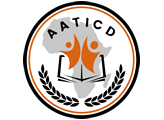Why Attend
It is critical for every individual involved with hazardous waste, whether with its disposal or more commonly with its transportation, to acquire the relevant safe handling knowledge and skills.
The first step in effective hazardous is to understand the difference between what is hazardous and what is not. Many types of hazardous material require special handling, and the correct handling methods must be used for the material being disposed of.
Indeed, hazardous waste, if not contained correctly can lead to fires, explosions, or the release of toxic fumes due to interaction with the container. It is crucial to ensure the hazardous material is ready for transport in order to reduce risks, last-minute efforts and added expenses.
This course provides every professional involved with the knowledge and skills to ensure the safe handling of hazardous waste as well as drafts of contingency/emergency plans.
Course Methodology
This course will be highly interactive and include group discussions, case studies, and syndicate work. It will include practical exercises that will allow all participants to use the knowledge they gained to demonstrate their skills in hazardous waste management.
Course Objectives
By the end of the course, participants will be able to:
- Reduce waste management cost by effectively distinguishing the different types of hazardous waste and applying the relevant pre-transport requirements and disposal methods
- Use engineering controls to ensure all individuals involved with hazardous waste have the required Personal Protective Equipment (PPE)
- Avoid accidents by applying the correct handling methods for drums and containers used for various types of hazardous wastes
- Identify training needs for all individuals involved with hazardous waste management
- Develop emergency response plans to hazardous substance release
Target Audience
This course is beneficial for individuals in industries that generate hazardous materials and who are charged with the development of contingency or emergency plans. This course is also designed for individuals who are directly or indirectly involved in the cleanup efforts of areas or buildings contaminated with hazardous waste.
Target Competencies
- Hazardous waste management
- Hazardous waste transportation
- Engineering controls
- Drums and containers handling
- Emergency response planning
Location:
South AfricaTraining Dates:
Each course starts every Monday of each week. Please book your training on a date that is a Monday.Course Duration:
Unit Standard:
NQF Level:
Number of Credits:
Course Fees
Note: Please fill in the online application form on the left or bottom if this page to receive a quotation with detailed pricing from AATICD.How to Apply:
To Apply Simply Fill in the Online Enquiries / Applications form on the Right Sidebar or Bottom of this website https://www.aaticd.co.zaNB:
When filling the online application form; please take note of your desired Training Month, Duration in Weeks and Training Session. This will give us the exact dates you will be attending your classes.Also note that Tuition Fees must be paid upfront on or before training start date. This is to ensure that all resources are made availabe for you before you start. You will not be allowed into training if fees are not paid and verified.
Also note that Tuition Fees Cancellations must be made 14 business working days before the starting date of training. This will allow us to do a 50% refund of the total amount paid. If cancellations are made thereafter note that no refund will be made to delegates.
Tuition Fees include teas and lunch as well as either a laptop or tablet which a delegate will take home free of charge.
Tuition Fee DOES NOT include Accommodation, Dinners and other Extra Curricular Activities or Incidentals. Delegates are expected to fund this on their own. AATICD will not be held accountable for any incidents to delegates.
In-House Trainings are also available for 3 or more delegates for any duration. Please consult with our Administration for such In-House training bookings.
Course Outline
- Hazardous waste collection and operations
- Definition of hazardous waste
- How to classify waste
- Recordkeeping requirements
- Waste container selection
- Accumulation point and satellite management
- Safety and health program for hazardous waste operations
- Site characterization and analysis
- Site control
- Medical surveillance and engineering controls
- Medical surveillance
- Employees covered
- Frequency of medical examinations
- Content of medical examinations and consultations
- Examination by a physician and costs
- Information provided to the physician
- Physician written opinion
- Recordkeeping
- Engineering controls
- Engineering controls, work practices and Personal Protective Equipment (PPE)
- PPE selection
- Totally encapsulating chemical protective suits
- PPE program
- Medical surveillance
- Handling drums and containers
- Opening drums and containers
- Material handling equipment
- Radioactive wastes
- Shock sensitive wastes
- Laboratory waste packs
- A sampling of drum and container contents
- Shipping and transport
- Tank and vault procedures
- Decontamination
- Decontamination procedures
- Equipment and solvents
- Personal protective clothing and equipment
- Unauthorized employees
- Commercial laundries or cleaning establishments
- Showers and change rooms
- Emergency response to hazardous substance release
- Emergency response plan
- Elements of an emergency response plan
- Procedures for handling emergency response
- Skilled support personnel
- Specialist employees
- Training
- First responder awareness level
- First responder operations level
- Hazardous materials technician
- Hazardous materials specialist
- On scene incident commander
- Trainers
- Refresher training
- Medical surveillance and consultation
- Chemical protective clothing
- Post emergency response operations




